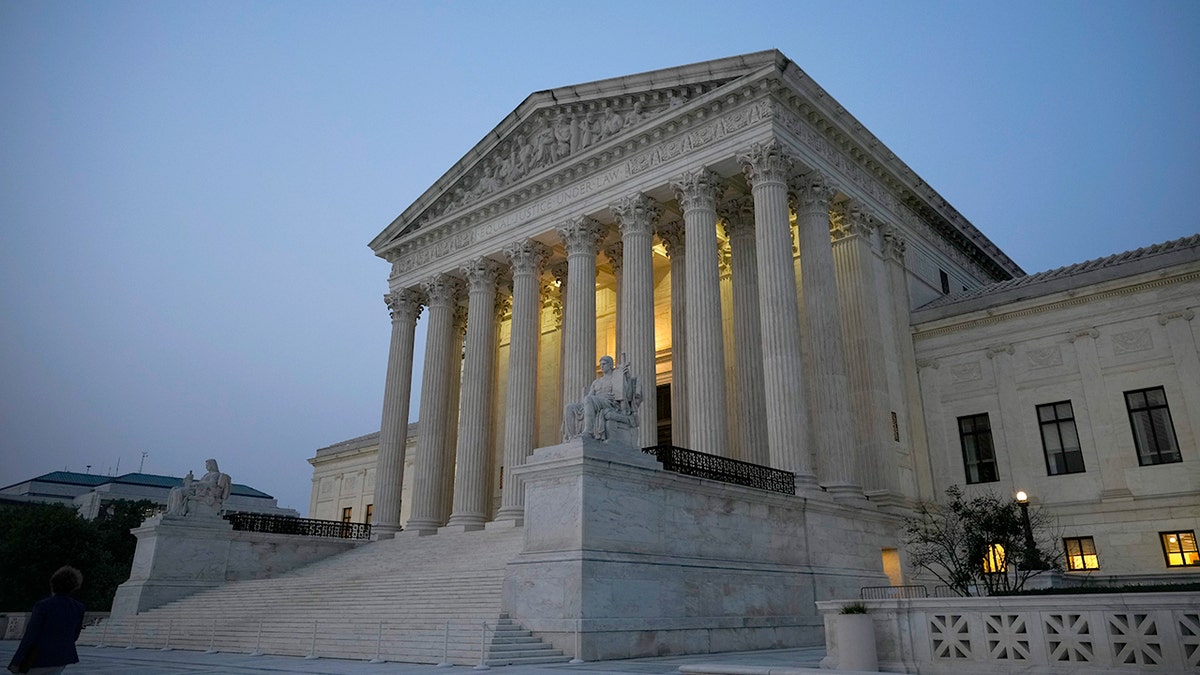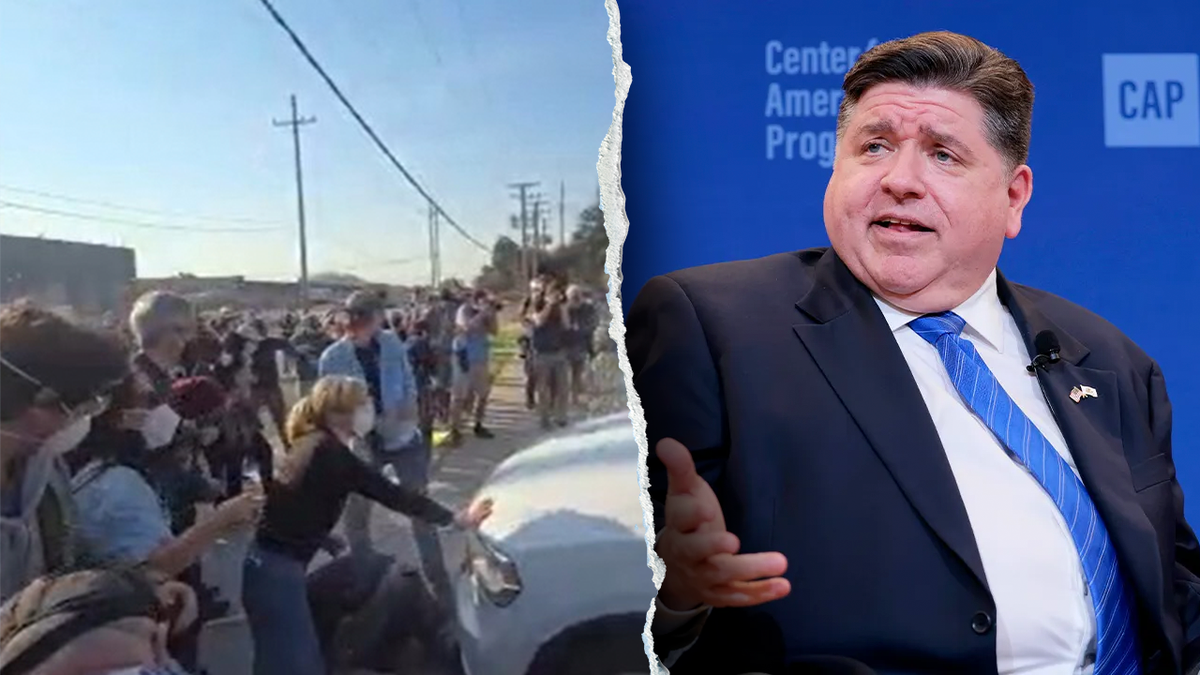NEWYou can now listen to Fox News articles!
President Donald Trump’s use of the National Guard in Oregon and Illinois faced dual tests in court this week, as his administration argued the two Democrat-led states are obstructing federal immigration enforcement.
Drawing on a well of constitutional provisions and court precedents, government lawyers have sought to justify deploying the National Guard in Portland and Chicago. Some legal experts say the president has the law on his side, while others worry Trump is threatening state sovereignty.
Democratic leaders have responded with outrage and indignation to Trump’s attempts to send federal troops to their jurisdictions. Chicago Mayor Brandon Johnson established “ICE-free zones” across Chicago to prevent federal agents from using any city-owned property in their ongoing operations. Conservative critics have compared this action and similar opposition to the Trump administration from Democratic leaders to attempts to nullify federal law, hearkening back to the 19th century.
“Illinois’s own Abraham Lincoln had some ideas about how to deal with this John C. Calhoun-esque ‘nullification,’” attorney and conservative commentator Josh Hammer wrote on X.
PRITZKER SUES TRUMP TO BLOCK NATIONAL GUARD ACTION IN ILLINOIS

Law enforcement detains a protester near an Immigration and Customs Enforcement facility in Broadview, Ill., Oct. 3, 2025. (AP/Erin Hooley)
Joshua Blackman, South Texas College of Law professor, said the federal government does not need permission from states to defend federal facilities. The Trump administration’s position is that it needs to deploy the National Guard to protect federal personnel and Immigration and Customs Enforcement buildings.
“This is a principle that goes back to the beginning of the Republic,” Blackman told Fox News Digital, pointing to the landmark case McCulloch v. Maryland, which found that Maryland could not tax a national bank created by Congress.
The high court said in that case that allowing a state to impose such a burden on a federal institution would violate the Constitution’s supremacy clause, which says federal law trumps state law.
The need for the National Guard
During one set of oral arguments this week before the U.S. Court of Appeals for the 9th Circuit, a Trump administration lawyer argued that unrest in Portland, prompted by ICE activity, justified the deployment of about 200 National Guard soldiers.
“For months, the ICE facility in Portland and the federal law enforcement officers who work there have faced a steady stream of violence, threats of violence and harassment from violent agitators bent on impeding federal immigration enforcement,” said Eric McArthur, arguing for the Justice Department.
The rebellion statute that Trump is using to federalize the National Guard, which governors have shared authority over, can be invoked in those situations, McArthur argued.
He also said it was the government’s position that the courts had no say over Trump’s assessment of the need for the military. Blackman made a similar point.
“The statute lets the president make the judgment over the need. It’s not clear to me that a court can second-guess it,” Blackman said.
States are ‘frustrating’ immigration enforcement
In court papers, the Trump administration has also cited a case from 1890, Neagle v. Cunningham, which established that the president has authority under the Constitution’s take care clause to “take care” that federal laws be carried out, including by doing what is necessary to protect those executing immigration laws.
In Neagle, a U.S. marshal shot and killed a person who attacked a Supreme Court justice, and the Supreme Court found that the State of California could not prosecute the marshal for murder since the marshal was protecting a federal officer.
FEDERAL JUDGE BLOCKS TRUMP’S NATIONAL GUARD DEPLOYMENT TO PORTLAND AMID CONSTITUTIONAL CHALLENGE

The facade of the Supreme Court (Drew Angerer/Getty Images)
Blackman said that states have for years been “frustrating” federal immigration enforcement and that these blue-state lawsuits trying to challenge the National Guard’s presence were an instance of that.
He said the states’ resistance did not “quite rise to the level of nullification,” like when states in the South tried to block integration of segregated schools, but that it was “in the ballpark.” If states were to defy court orders, that could escalate matters, Blackman said.
The lawsuits, which could rise to the Supreme Court, especially if the circuit courts were to rule against Trump in the coming days, could help to sharpen the dividing line between state and federal authority over law enforcement.
Policing falls under ‘state’s responsibilities’
Like Oregon and Illinois, Matt Cavedon, a director at the CATO Institute, said the 10th Amendment is also in play in these cases and that it implies that the Trump administration cannot typically take over a state’s law enforcement responsibilities.
Cavedon also said it was unusual, in his view, that a Republican government would adopt a more expanded view of federal power.

The Department of Homeland Security is criticizing Illinois Democratic Gov. JB Pritzker (right) for not being proactive in responding to a chaotic anti-ICE protest in Broadview, Ill., last week. (Anna Moneymaker/Getty Images and Jon Stegenga via Storyful)
“It’s not usually conservatives who are arguing that there are just vast unenumerated federal powers belonging to the president, certainly in the domestic context,” Cavedon told Fox News Digital.
CLICK HERE TO GET THE FOX NEWS APP
Cavedon said the events in the two states are “really core issues of public security and safety, which are at the heart of what a state’s responsibilities are.” Oregon and Illinois leaders have made similar claims that nothing extraordinary was playing out crime-wise to warrant National Guard intervention.
“I think the 10th Amendment answers a question: Any powers that are not conferred on the federal government are reserved to the states, respectively,” Cavedon added.
Original News Source Link – Fox News
Running For Office? Conservative Campaign Consulting – Monthly Rates!
